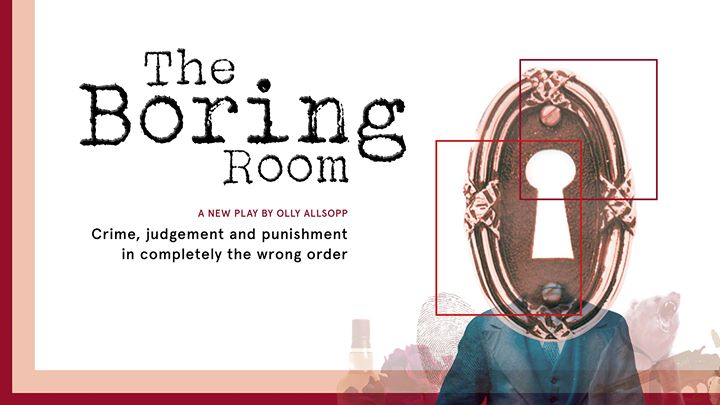It’s a bad idea, if your play’s called The Boring Room, to draw attention to how boring it is. It’s an even worse mistake to bookend your play with the word “bullshit”. It’s like self-harming. Playwright Olly Allsopp, who sounds like the personification of northern cliché, will tell us this is ironic self-deprecation. But the problem with self-deprecation is it only works if the material is good. If it isn’t good, what you’re doing is inexplicably flagging to the audience that your material is terrible.
Self-conscious nomedy’s in vogue. It’s become the done/dumb thing to showcase your command of ideas and humour by deliberately, even passive aggressively omitting the same from your work. This theatrical jamming is fun for somebody, just not the snoozers in the stalls.
In the program flyer handed to you at the end, amongst the names in the acknowledgements is John Barron. This could just be a friend of the production naturally, but I would like to think, because I can’t obnoxiously crowbar him into this review otherwise, that this was a misprint of the late John Barton, co-founder of the Royal Shakespeare Company. John Barton – one of the great theatre directors, writers and interpreters of difficult texts of the 20th century.
If the creative team behind The Boring Room had heeded Barton’s words, many of the mistakes that befall Tom Crowley’s production could’ve been avoided. Barton taught that it wasn’t enough for performers to play scenes with gusto (though there’s no denying the energy on stage here), one had to engage the audience to ensure they kept listening. One had to be clear about one’s intention, about teasing out the irony and ambiguity in the text, remembering to change gear within a scene. It’s a classic mistake to deliver an entire scene in the same register. A mistake, said Barton, because once the audience understood the gist of what was being said, and the nature of the situation being presented, they stopped listening to the language and all those all important details.
The Boring Room offers three opaque mystery vignettes, a very loose association of ideas, that according to the accompanying spiel, explore “crime, judgement and punishment in completely the wrong order” (can there be a wrong order if events aren’t linked?). Those alleged themes are buried under meandering dialogue and the drift that’s induced when a show has no clear through line. The players are fun, the diminutive Michael Keane in particular, and there’s some enjoyable word play but in the end it’s like trying to hold onto gas.
A wag at the back of the theatre, handing out the program flyers, told exiting patrons it would explain everything. That might be the best joke in the show. The Boring Room is boring, and that, dramaturgically speaking, is, yes you’ve guessed it, murder.

